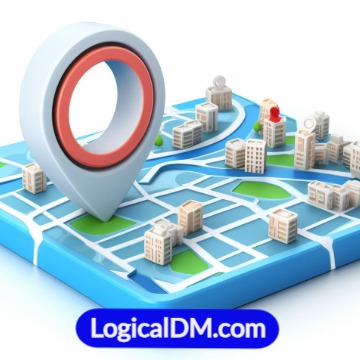
Local search engine marketing is an effective strategy that can help small business owners attract more customers and boost their income. But it's not a one-time endeavor - it is a marketing strategy that requires ongoing commitment from business owners to stay abreast of SEO best practices.
Local SEO strategy can also benefit your small business by helping it cultivate relationships with other local companies and broaden its reach. It's beneficial for both parties, with results that last for years.
Optimize your Website for Local Search.
If your business has multiple locations or just one, optimizing your website for local search is the first step of your online marketing initiatives. Being found in local searches will enable potential customers to discover products or services similar to what your business provides.
As search engines increasingly prioritize user intent, optimizing your website for local searches has never been more critical. Not only will ranking higher in SERPs for keywords related to your business increase brand awareness and social media reach, but local SEO also plays a significant role in increasing website traffic.
The most fundamental step in local search optimization is ensuring your name, address and phone number are consistent throughout both your website and Google My Business (GMB) listing. This is now known as Google Business Profile. Inconsistent data can confuse search engines and negatively affect your rankings in local searches.

Another crucial step in local search optimization is verifying and adding your business to relevant directories and citations. This could include popular aggregators like Apple Maps or Yelp, as well as industry-specific directories like Yellowpages or SuperPages. Your local audience wants to know your physical location. Though it may seem tedious, local search engine optimization requires multiple locations. The more places your business has, the higher your chances are of being found for all relevant searches conducted within those regions.
In addition to providing useful information to search engines, including your city and state in the title tag and meta description of your website can help boost local rankings. Schema markup can also be utilized for location-specific data like an address and phone number - this technical process may need assistance from a developer but is highly effective for improving local search visibility and driving more conversions.
Optimize your Business’s Google Business Profile Page.
Google Business Profile is one of the best free ways to promote your business on both Google and local search. However, it's essential that your page on Google is optimized properly with your business information for maximum exposure.
Google uses information provided on your GMB/GBP page when it displays relevant listings in search results. This includes your star rating, reviews, and other details that could influence a potential customer's decision whether or not they visit your business.
To get your profile started on Google My Business, go to the "Add a business" option and enter your business name, address or service area, and other necessary details. Make sure all this information is as relevant and up-to-date as possible.
Next, choose a primary category that accurately represents your business as an entire. This choice is essential since it will determine which keywords appear in Google Maps and local search results.
Once you select a primary category, you can add secondary ones. Doing so will enable your business to appear in various local searches and give you the chance to optimize your Google My Business page for various services.
Additionally, adding your contact information such as business hours and phone number is a wise idea. Doing this allows potential customers to easily get in touch with you if they have any queries or require specific services.
Finally, add your logo and any other pictures associated with your business to make your profile stand out from competitors and increase the possibility of receiving online reviews. These testimonials can help build trust with potential customers while driving more traffic to your establishment.

Optimize your Social Media Profiles for Local Search.
Social media profiles for businesses can have a major impact on their local search engine visibility. By optimizing these accounts, posting relevant content, encouraging user-generated content and reviews, and building relationships with the community around them, businesses can improve their local SEO rankings and attract more customers.
Small business owners or independent marketing consultants alike need to leverage local search engine marketing in order to stand out in the online space. Studies reveal that 80% of shoppers start researching purchases while in store, so being visible in local search results is key for increasing brand recognition and increasing sales opportunities.
Optimizing your social media profiles for local search requires that you have complete and accurate NAP (Name, Address, Phone) information on each profile. This may seem like a simple step but can make an enormous difference in terms of your overall search ranking and customer actions.
Another essential step is to link all your social media profiles to your primary website. This can be done through the About > Links section on each profile. Furthermore, Google+ now allows for setting up Google+ authorship - making sure your name appears under article titles on search engine result pages.
Finally, it's wise to regularly update your business' social media profiles. This could be as straightforward as posting a photo or creating new content, but it's essential for keeping your online presence active and connected with local customers.
Optimizing your social media profiles for local search is essential, but it's also crucial to take time and carefully consider what you hope to accomplish from a local search engine marketing campaign. Keep in mind that this should be an ongoing process in order to maintain a strong presence within local searches.

Optimize your Content for Local Search.
No matter the size of your business or brand, local search engine marketing is a critical element for drawing in nearby customers. A recent study revealed that 86% of those who use the Internet to locate products or services near them will call or visit that business within one day of finding it.
One of the most essential steps you can take to optimize your content for local search is targeting specific keywords relevant to your location. This involves including those keywords in the URL, title tags, headers and meta description of each piece of content created. Furthermore, include region-specific landmarks and hotspots within your material as well.
Another essential factor is making sure all of your content is accessible on mobile devices. When your website loads quickly and essential information is easily accessible, you'll attract new visitors and keep them coming back.
Finally, ensure your name, address, and phone number (NAP) are consistent across all online spaces. This includes Google My Business page, social media profiles, and your business website. Conduct an audit of places where listings exist and make necessary corrections where needed.
Positive reviews for your business are a crucial factor in local search rankings, so it's important to get as many positive reviews as possible on the sites where your listings exist. You can achieve this by conducting client exit interviews, sending follow-up emails asking for reviews, or engaging with customers on social media platforms. These strategies will help boost the number of positive reviews your business earns and enhance its Google My Business rankings.

Create a Local Business Listing on Yelp.
Yelp is one of the largest review platforms with 90 million consumers, providing your business with extra visibility. But to maximize its effectiveness, it's essential that you invest the time in optimizing your listing and encouraging reviews from customers.
It's essential to ensure your information on Yelp is correct. Make sure your business address, phone numbers, and hours of operation are correct.
Once your business has been claimed on Yelp, you can manage and update its listings at no cost. In addition to basic business info, you may also upgrade your account and create a profile photo for the business.
For small business owners, it's essential that their Yelp listing is optimized for local searches. By taking the time to claim and optimize your listing, you can help boost brand awareness, website traffic, and sales.
Creating a listing on Yelp is an effortless process that takes only minutes to finish. After your listing is optimized for search, you can start building an impressive presence on the popular review site.
If your business provides service-based goods or solutions, optimizing and claiming your Yelp page is essential for growth. Not only will this boost search engine rankings and bring in more foot traffic, but it can also enhance customer experience as well.
Furthermore, using Yelp allows for collecting reviews from customers which is an excellent way to engage with your community and show that you value their opinion. However, make sure your profile stays clean and organized, plus be sure to respond promptly to all customer reviews.
Example
Logical Digital Marketing is a digital marketing agency specializing in Local Search Engine Marketing (SEM) strategies for small business owners across the United States. We are a team of experts in the field of SEO and SEM, and our goal is to help small businesses achieve stronger online visibility while increasing lead flow and customer base. Our strategies and techniques, have helped dozens of small business owners in different niches, and their success stories are touched upon below.

One of our clients is a small restaurant located in the heart of upstate New York. The restaurant had been in business for nearly a decade, but it was struggling to attract new customers. They had a website, but it wasn't ranking on search engines, and they had little online presence on social media platforms.
The LogicalDM.com team began by conducting a comprehensive audit of the restaurant's website, identifying areas that needed improvement. We discovered that the website had slow load times and lacked optimized keywords and meta descriptions. We also found that the restaurant's Google My Business listing was incomplete and didn't contain accurate information.
Our team set out to fix these issues by optimizing the website with relevant keywords, improving the site's speed, and updating the "Google My Business" listing with accurate information. We also created social media profiles for the restaurant and began posting regularly to increase its online visibility.
Within a few months, the restaurant's website began ranking on the first page of search engine results, and their social media profiles had garnered a decent following. The restaurant's foot traffic increased by 22%. Although the restaurant was pleased, Logical Digital Marketing was not satisfied and decided to do more. We poured over data and decided upon a four pronged strategy.
First, we targeted specific demographics or customer segments that the restaurant was not currently attracting. We analyzed the customer data to determine who the restaurant's current customers are and who they are not reaching. Based on this data, we created targeted campaigns to attract new customers.
We also decided to improve the restaurant's online reputation. We conducted a comprehensive online reputation management campaign, which involved monitoring and responding to reviews on various online platforms. We encouraged satisfied customers to leave positive reviews, which increased the restaurant's overall rating and attracted more customers.

We also helped the restaurant management and employees focus on improving the restaurant's overall customer experience. The restaurant conducted customer surveys to gather feedback on the restaurant's service, food, and atmosphere. Based on this feedback, we worked with the restaurant to make improvements to enhance the customer experience.
Lastly, Logical Digital Marketing examined slower times during operating times. We ran promotions and offers to attract more customers to the restaurant during those slower times. The restaurant manager created a special menu item and a special discount offer for customers who bring in a coupon or mention a specific promotion. The management executed our idea to split test those options to see which option brought in more customers.
Overall, the results were as follows:
Increase in online visibility and search engine rankings: By optimizing the restaurant's website and "Google My Business" listing, the restaurant's online visibility and search engine rankings improved significantly, resulting in a higher number of impressions and clicks. The increase in online visibility and search engine rankings resulted in a 36% increase in website traffic.
Increase in social media engagement: By creating social media profiles for the restaurant and posting regularly, the restaurant gained a significant following on social media platforms. The increase in social media engagement resulted in a 47% increase in social media followers and likes.
Increase in foot traffic: By optimizing the restaurant's website, Google My Business listing, and social media profiles, and by implementing a targeted campaign or promotion, the restaurant's foot traffic increased significantly. The increase in foot traffic resulted in a 31% increase in daily visitors to the restaurant.
Increase in customer loyalty and positive reviews: By improving the overall customer experience, the restaurant gained more loyal customers and positive reviews. The increase in customer loyalty and positive reviews resulted in a 23% increase in repeat customers and a 57% increase in positive online reviews.
Another success story was a small boutique located in the Toledo area in Ohio. The boutique sold unique, handmade products, but they were struggling to compete with larger chain stores. They had a website, but it wasn't optimized for search engines, and they had no online presence on social media platforms.

Logical Digital Marketing's team began by conducting a comprehensive keyword research and competitor analysis to identify the keywords and phrases that would drive traffic to the boutique's website. They also created more social media profiles for the boutique and began posting regularly to increase its online visibility.
Within a few months, the boutique's website began ranking on the first page of search engine results for relevant keywords, and their social media profiles had garnered a significant following. The boutique's online sales had increased by 44%, and they had seen a 15% increase in foot traffic.
While Logical Digital Marketing has helped dozens of small business owners across the United States achieve online visibility and increase their customer base, there were still areas for us to improve upon. One of the challenges we faced was keeping up with the ever-changing algorithms of search engines and social media platforms. We have to constantly stay up-to-date with the latest trends and techniques in the field of SEM to provide our clients with the best possible results.
Another challenge we face is the competition. Many small businesses invest in SEM strategies, and it is becoming increasingly difficult to stand out in a crowded marketplace. Logical Digital Marketing has to find new and innovative ways to differentiate their clients from their competitors and help them achieve their goals.
Despite these challenges, LogicalDM.com remains committed to helping small local businesses achieve online success. We continue to provide innovative SEM strategies and techniques to help our clients achieve their goals and grow their businesses. Our success stories continue to inspire small business owners across the United States, and we are determined to help more business owners achieve their dreams.

 Add Row
Add Row  Add
Add 



